No products in the cart.
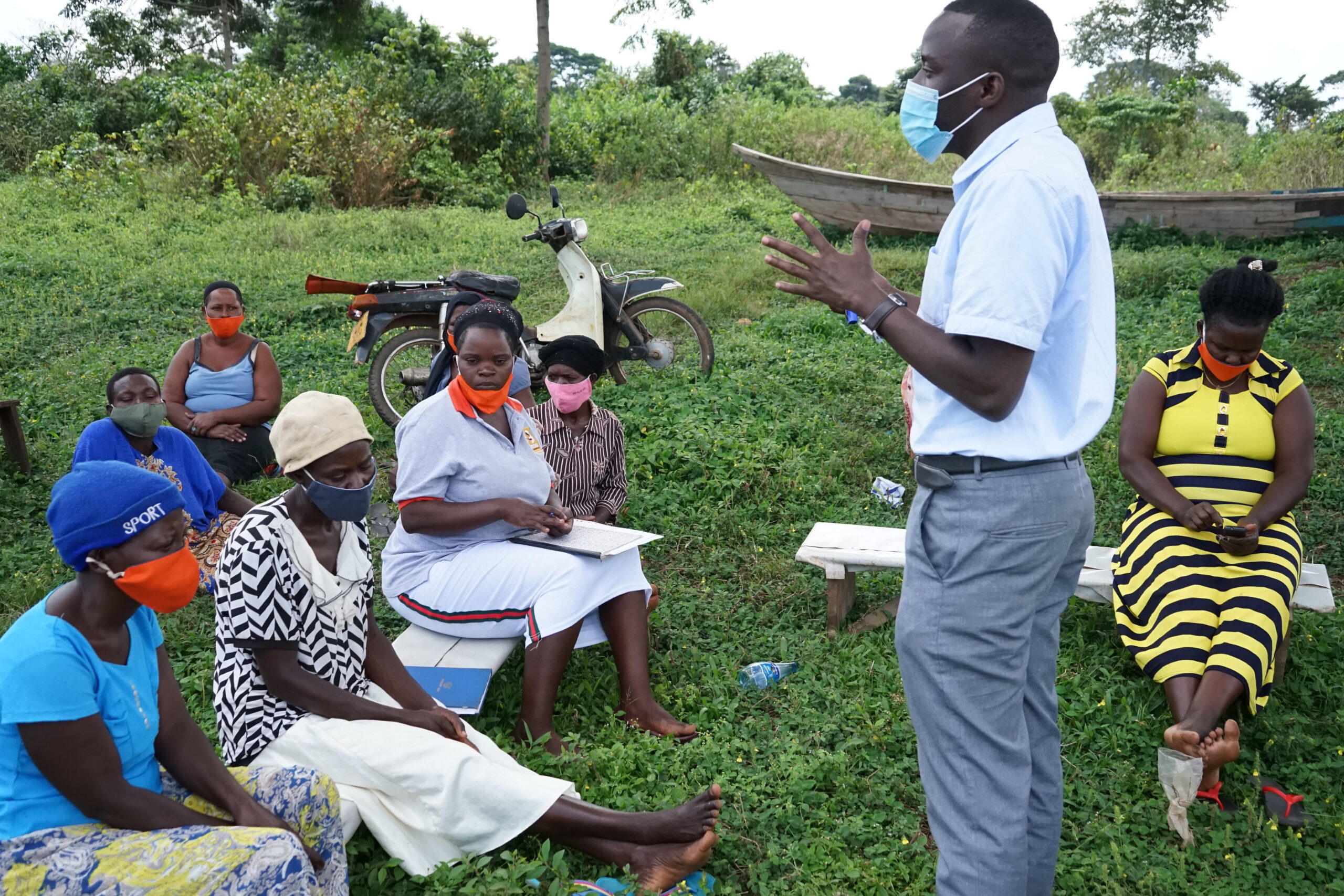
He Fisheries And Aquaculture Bill, 2020 Position Paper By Selected CSOs And Other Stakeholders
Introduction
The organizations and individuals whose signatures are appended hereto wish to present their position paper highlighting; a brief background to Uganda’s Fisheries Legal Framework, the salient features of the Bill and our remarks on some clauses of the Bill as well as other aspects for which we strongly believe amendments should be made.
Background to Uganda’s Fisheries Legal Framework
Law is informed by policy. There has been a steady evolution of the Ugandan legal framework on fisheries, starting with the 1951 Fisheries Ordinance which was reenacted in 1964 as the Fish and Crocodile Act. In 2000, this piece of legislation was revised as Fish Act, Cap 197. In 2004, a National Fisheries Policy was passed to guide the management and development of fisheries resources in Uganda. This was followed by a 2011 amendment to the Fish Act to provide for licenses, introduction of currency points and retentions of funds.
The National Fisheries and Aquaculture Policy, 2017
The Fisheries Policy of 2004 was found to be inadequate because it was being implemented using the Fisheries Act Cap 197 which had no deterrent penalties. In other words, the law “has no teeth”. Such a shortcoming led to wasteful fishing practices that resulted into declining fish stocks. In November 2015, the president sought to contain the situation by issuing a directive for security officials to deal with persons involved in unlawful fishing activities.
The 2017 Fisheries Policy is considered as a platform in which to lay the legal framework for more deterrent measures in the sector. Essentially, it is a precursor to clothing the presidential directive as an Act of parliament. This – it is envisioned – will enhance the sector’s overall contribution to overall food production in Uganda. According to the policy, “fisheries has been identified as the easiest production activity to be carried out at a household level, hence a path way to improved nutrition and food security, income generation, and poverty reduction.”
The various aspirations contained in this policy are to be given effect through the Fisheries and Aquaculture Bill, 2020 that parliament is set to pass into law.
Salient Features of the Fisheries Bill
According to the Bill, its objective is to make provisions for;
- The conservation, sustainable management, utilization and development of the fisheries sector;
- The integrate management of the fisheries sector in order to facilitate the achievement of sustainable increases in economic, social and. environmental benefits from fisheries, the conservation, capture, farming, rearing, processing and marketing of fish;
- The licensing and registration of fishing vessels and fishers;
- The control and regulation of all fisheries and aquaculture production activities and practices, the methods of fishing and fishing gear;
- An enabling environment for equitable sharing of increased benefits from a more productive fisheries sector;
- The establishment and regulation of lake management organizations and gazetting of landing sites;
- Fish breeding and breeding areas and to provide for the regulation of fish feeds;
- The control and regulation of all fisheries and aquaculture production activities and practices in an integrated manner to achieve conservation and sustainable economic, social and environmental benefits for the present and future generations;
- Administration, management and coordination with local governments and other stakeholders at all levels;
- A sustainably financed Directorate for the management of the fisheries sector with clearly defined structures and linkages between the mandates of national and local governments and the private sector;
- The promotion of public participation in the management and conservation of fisheries resources including women and youth and other vulnerable groups;
- The promotion of public private partnerships in fish production, value addition and marketing;
- The guarantee of quality and safety of fish and fishery products, including biosafety and biosecurity;
- The promotion of research-based decision making and sharing of information and data; and
- The mechanization of fisheries, aquaculture and aquatic weed management.
Clause-Specific Remarks
Clause 13 of the Bill legalizes the involvement of the army in regulating fishing activities. First, it provides for the training of officials from the Fisheries Monitoring, Control and Surveillance Unit in para military skills by the UPDF. Furthermore, the minister of agriculture is to work in consultation with the minister of defence on a wide range of issues, including arms and ammunition.
In our opinion, such a provision provides a legal basis for the continuation of acts of torture that have been attributed to security officials enforcing the presidential directive. Rather than adopt a militaristic approach to fisheries regulation, the law should be adopting a Human Rights Based Approach whereby persons suspected of involvement in illegal fishing activities are informed of the charges against them and presented to the courts of law within 48 hours for trial in line with the non-derogable right to a fair hearing provided for under Article 28 of the Constitution.
The various roles apportioned to the army under the Bill would be better suited for the Uganda Police Force, operating under the Fisheries Protection Unit and/or Police Marine Unit. The purpose of such an amendment would be to promote human rights protection during fisheries operations since the police force is generally considered to be more accountable to the civilian populace than the army.
Clause 21 on the use of reasonable force empowers surveillance officers to use reasonable force while carrying out searches and seizures.
The danger inherent in such a provision is that it does not define the circumstances under which the use of force may be warranted, or what may be reasonable. From the experience with enforcing the presidential directive on regulating fishing activities, use of force can easily become a default approach for the said officers even when the suspects are neither armed nor violent. This poses a threat to a number of constitutionally protected rights such as freedom from cruel, inhumane and degrading treatment that is guaranteed under Article 24 of the Constitution.
Whereas the Bill gives the UPDF a role in supporting enforcement of the Bill through application of the State’s coercive apparatus, it will be observed that the UPDF Act does not define reasonable force. This therefore presents a challenge to human rights protection during operations owing to the fact that the enforcers under the Bill are not held to a definite and ascertainable standard of force.
In our opinion, replacing the army’s roles under this Bill with the Police Force would address this potential pitfall since reasonable force is defined under the Criminal Procedure Code, which governs arrests by police officers. As such, enforcers of the law would have an ascertainable standard of force to have recourse to in the varying circumstances of their operations, and be easily held to account for any excesses committed.
In addition, we call for your attention on the following provisions of important relevant international instruments; Article 6 of the UNDROP “Right to Life, Liberty and Security of Person (both 6.1 and 6.2: “the right to life, (…) and security of person”, “Peasants and other people working in rural areas shall not be subjected to arbitrary arrest or detention, (…)”.
Article 17 of the UNDROP “The Right to Land “(…)States shall prohibit arbitrary and unlawful forced eviction, (…), expropriation of land and other natural resources, including as a punitive measure (…)”
The Voluntary Guidelines for Securing Sustainable Small-Scale Fisheries in the Context of Food Security and Poverty Eradication (SSF Guidelines) 6.9 “All parties should create conditions for men and women of small-scale fishing communities to fish and to carry out fisheries-related activities in an environment free of crime, violence, (…) corruption and abuse of authority. States should ensure access to justice for victims of inter alia violence and abuse (…)”
Clause 28 potentially excludes fisher folk from co-management structures.
Considering that fisher folk are key stakeholders in the fisheries sector, it would have been prudent for the law to expressly recognize and co-opt them into the various fisheries co-management structures. Without such express provision, there is a real likelihood that these proposed structures shall be liable to abuse and infiltration by opportunists who have no direct stake as was the case previously with Beach Management Units. It is therefore suggested that the fisher folk, under the auspices of producer organizations, partner with the government to address fisheries management. The following provisions in the UNDROP and SSF Guidelines are worthy noting;
Article 5. 1 of the UNDROP ”Peasants and other people working in rural areas have the right to have access to and to use in a sustainable manner the natural resources present in their communities that are required to enjoy adequate living conditions […]. They also have the right to participate in the management of these resources.”
SSF Guideline 5.15 “States should facilitate, train and support small-scale fishing communities to participate in and take responsibility for, taking into consideration their legitimate tenure rights and systems, the management of the resources on which they depend for their well-being and that are traditionally used for their livelihoods. Accordingly, States should involve small-scale fishing communities – with special attention to equitable participation of women, vulnerable and marginalized groups – in the design, planning and, as appropriate, implementation of management measures, including protected areas, affecting their livelihood options. Participatory management systems, such as co-management, should be promoted in accordance with national law.”
Clause 53 subjects local fishing, which is purely for consumption, to centralized authority.
While it is recognized that subsistence fisher folk might have been provided for under clause 53 which deals with local fishing, it is suggested that their regulation should be decentralized and entirely handled at a local government level, not through the its subjection to a central authority known as Chief Fisheries Office. This is because the local government structures are more accessible to the local populace and more ‘user friendly’ compared to centralized authorities which are often considered alien and fraught with bureaucracy. Therefore, clause 53 of the Bill appears to be running counter to the spirit of Article 176 of the Constitution that provides for decision making by government to be decentralized to local structures.
Clause 54 is vague in so far as it provides for licenses and permits without distinguishing between the two.
Whereas the Bill provides for the regulatory mechanisms of both permits and licenses, these are not distinguished either in the interpretation clause or the subsequent provisions. As such, it is confusing when one seeks to understand the circumstances that warrant a license and those that warrant a permit. It is suggested that the Bill is amended to draw a distinction between the two either in the interpretation clause or in subsequent provisions such as clause 54.
Clause 109 on what constitutes undersize fish is too blanket.
In our opinion, this provision is too broad because even when using the right fishing gear, some fish like the Nile Perch can get entangled in the net as “by-catch”. As such, it is imperative that the law makes exceptions for this phenomenon rather than putting it in the realm of criminal offences. It is also suggested that the law should clearly set out measurements since some fish might be mature but stunted. This should be clarified further and explained through defining what is undersize for all the types of fish.
Clause 136 (2) (a) entirely vests in the minister all powers of recognizing representatives of stakeholders in the fisheries sector.
We are concerned that such a provision is prone to abuse by being invoked to deny recognition to associations and other civil society actors who are highly vocal and critical of the excesses in the fisheries sector. Instead, we suggest that the provision is rephrased to only allow the minister to set out in the regulations an objective inclusion criterion which would automatically grant recognition – and by extension, the platform for meaningful engagement – to those associations and other bodies that qualify.
General remarks
- Many players involved in the fisheries sector cut across different segments of the value chain, so requiring a separate licence for every activity from fishing to marketing is rather too cumbersome. It is suggested that the law should make provision for combined licenses which would enable the holders to seamlessly operate across the value chain without the need to seek and obtain a multiplicity of licenses.
- The Bill should be harmonized with some important principles from agreed international instruments. For instance;
- The principles in the Voluntary Guidelines for Securing Sustainable Small-Scale Fisheries in the Context of Food Security and Poverty Eradication (SSF Guidelines) that address policies, strategies and legal frameworks concerning small-scale fisheries. The Bill should have a clear human rights-based approach, and place the people, rather than fish, in focus.
- UNDROP includes fishers as UNDROP’s rights holders and establishes states’ obligations to respect, protect and fulfil the rights of peasants and other people working in rural areas, including fishers (Art.2.1). Notwithstanding the UNDROP’s non-binding nature, according to international law, states shall apply it in good faith and can take this as a guide for the adequate implementation of the human rights treaties they have ratified, including the ICESCR and the ICCPR
- Article 16(1) of UNDROP states that peasants and other people working in rural areas have the right to an adequate standard of living for themselves and their families, and to facilitated access to the means of production necessary to achieve them, including production tools, technical assistance, credit, insurance and other financial services. They also have the right to engage freely, individually and/or collectively, in association with others or as a community, in traditional ways of farming, fishing, livestock rearing and forestry and to develop community-based commercialization systems
- Article 14(e) of CEDAW empowers women to organize in self-help groups and cooperatives in order to obtain equal access to economic opportunities through employment or self-employment. KWDT is one such entity.
- Generally speaking, the way the Bill is being tabled without adequate public participation is in breach of human rights principles of participation and transparency (Consultation and Participation is also one of the Guiding Principles (6) of the SSF Guidelines.
- With regard to nkolongo fish, it will be noted that a delicate balance ought to be maintained between their numbers and those of other species such as Nile Perch in order for the fisheries sector to be sustainable. However, the current legal regime prohibits the catching of nkolongo fish on Lake Victoria. It is therefore suggested that Uganda could benchmark from the South African law which provides for annual permits for catching nkolongo so that their numbers do not overwhelm the lake eco system and pose an existential threat to species to species such as Nile Perch.
Conclusion
The Bill, in its current form, poses threats to various human rights of both a civil and political nature such as freedom from torture and the right to a fair hearing, as well as those of an economic, social and cultural nature such as the right to adequate food.
SIGNED BY:
- Katosi Women Development Trust (KWDT)
- FIAN Uganda
- Uganda Fisheries and Fish Conservation Association (UFFCA)
- Federation of Fisheries Organization in Uganda (FFOU)
- Centre for Food and Adequate Living Rights (CEFROHT)
- Silver Kayondo – Advocate, Right to Food
- Kizza Stephen – Mayor Kalangala
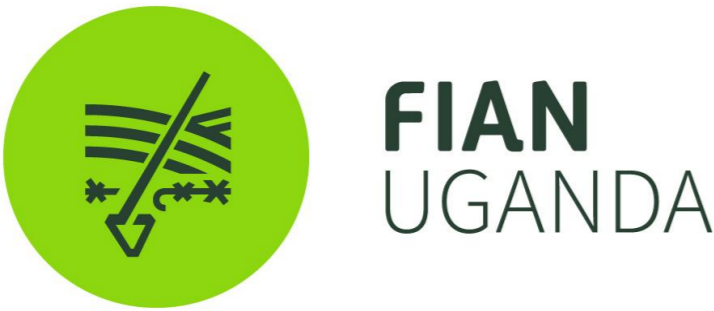
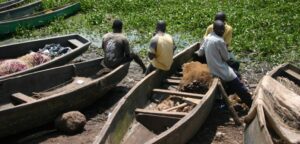
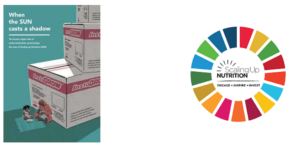
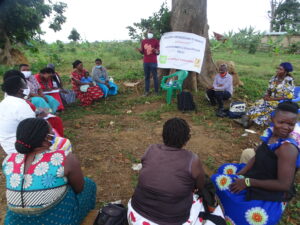
Comment (1)
A WordPress Commenter
Hi, this is a comment.
To get started with moderating, editing, and deleting comments, please visit the Comments screen in the dashboard.
Commenter avatars come from Gravatar.